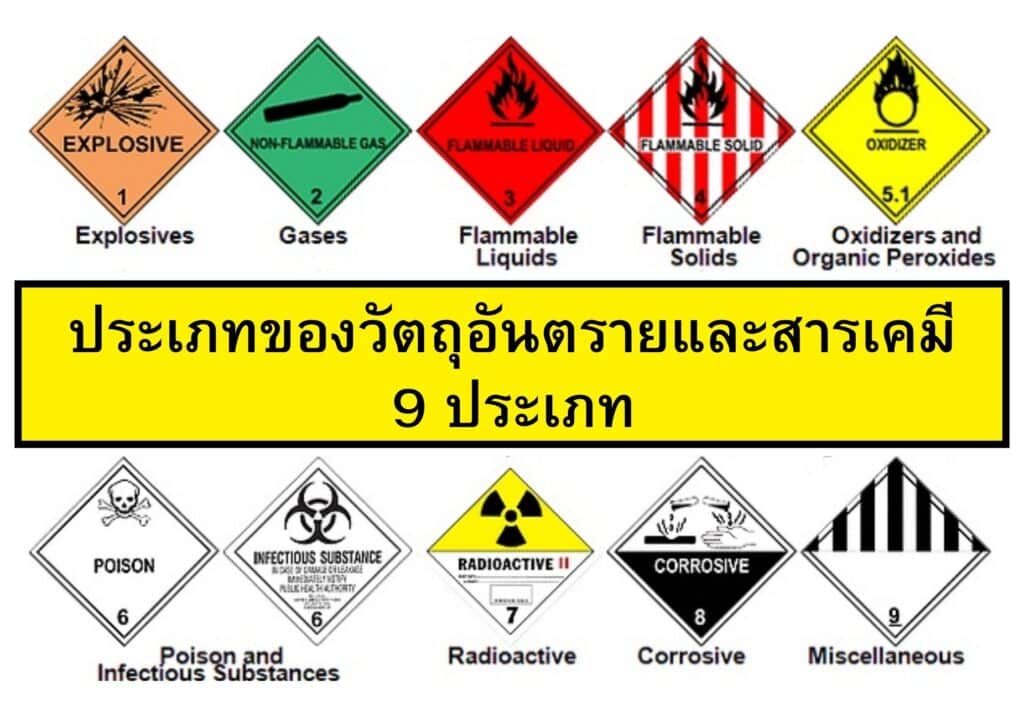What is a hazardous substance?
Hazardous substances are chemicals or objects that have chemical or physical properties. Dangerous when in contact with that substance, which affects human health. To property and to the environment In the Hazardous Substances Act of 1992, “hazardous substances” means the following objects:
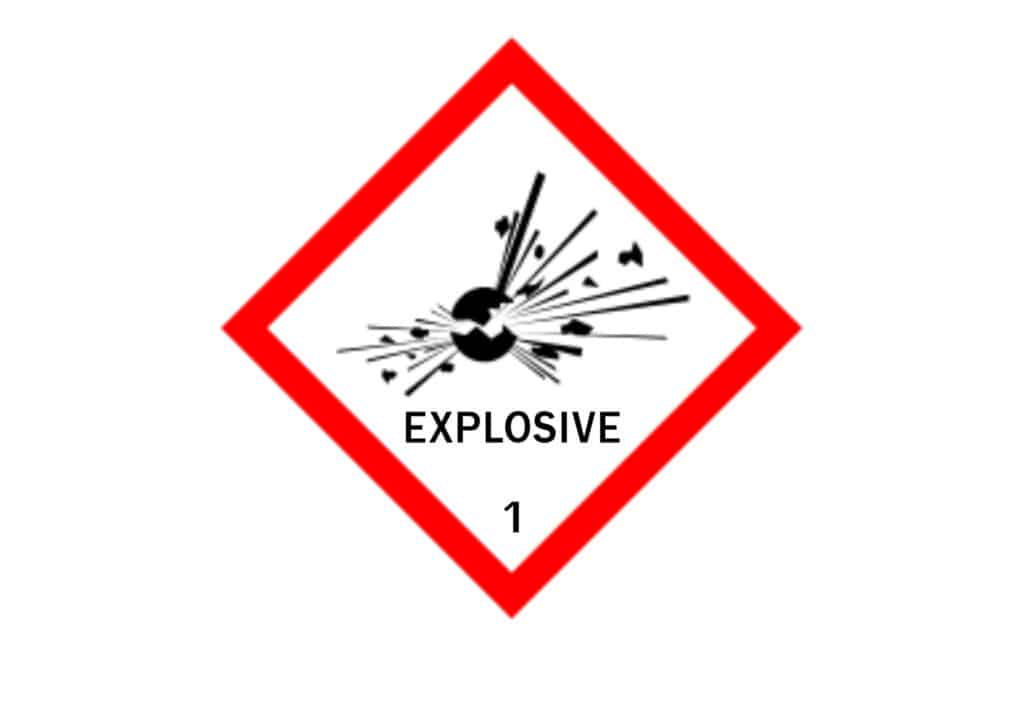
Category 1: Explosives are chemicals that may cause an explosion.
Divided into 6 sub-categories:
Category 1.1 All objects with the potential to cause a violent and sudden explosion.
Category 1.2 Objects that may cause harm by scattering shrapnel but not by a sudden and violent explosion.
Category 1.3 Objects that may cause a slight explosion hazard in a fire or other heat source.
Category 1.4 Objects that do not pose much of a hazard but may erupt during transport. Damage is contained only within the package or packaging.
Category 1.5 Objects not suitable for explosion. But when it catches fire it can cause an explosion. cause serious harm Same as type 1.1, such as gunpowder, projectiles, dynamite, ammonia, trichromate.
Category 1.6 Objects which are not flammable or extremely inert to explosion and do not pose a serious danger.
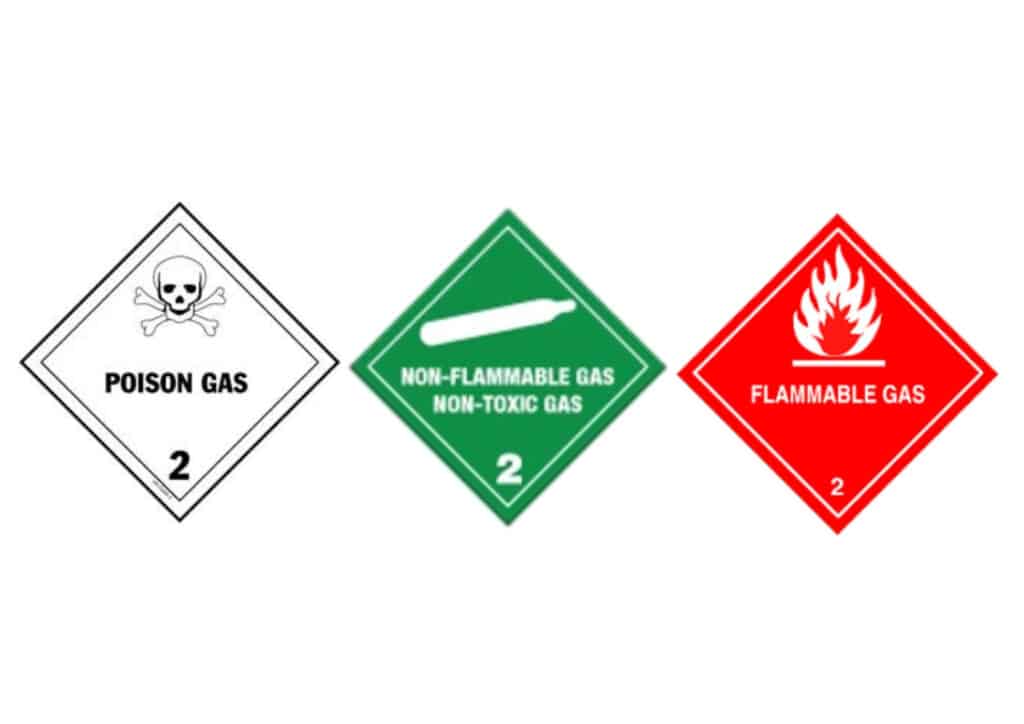
Type 2 Gas is a state of matter. Unstable shape and volume
Divided into 3 sub-categories:
Category 2.1 Flammable gas is a gas that ignites easily. When exposed to heat, the flame has a flash point lower than 37.8, such as acetylene, ethane, cyclobutane, ethylamine, methane, butane, etc.
Category 2.2 Flammable gas, non-toxic, compressed under pressure, may be dangerous from explosion upon impact or heat, such as carbon dioxide, argon, oxygen.
Category 2.3 Toxic gases are corrosive or toxic to humans, such as chlorine, ammonia, boron trifuloxide. Carbon full oxide and methyl bromite
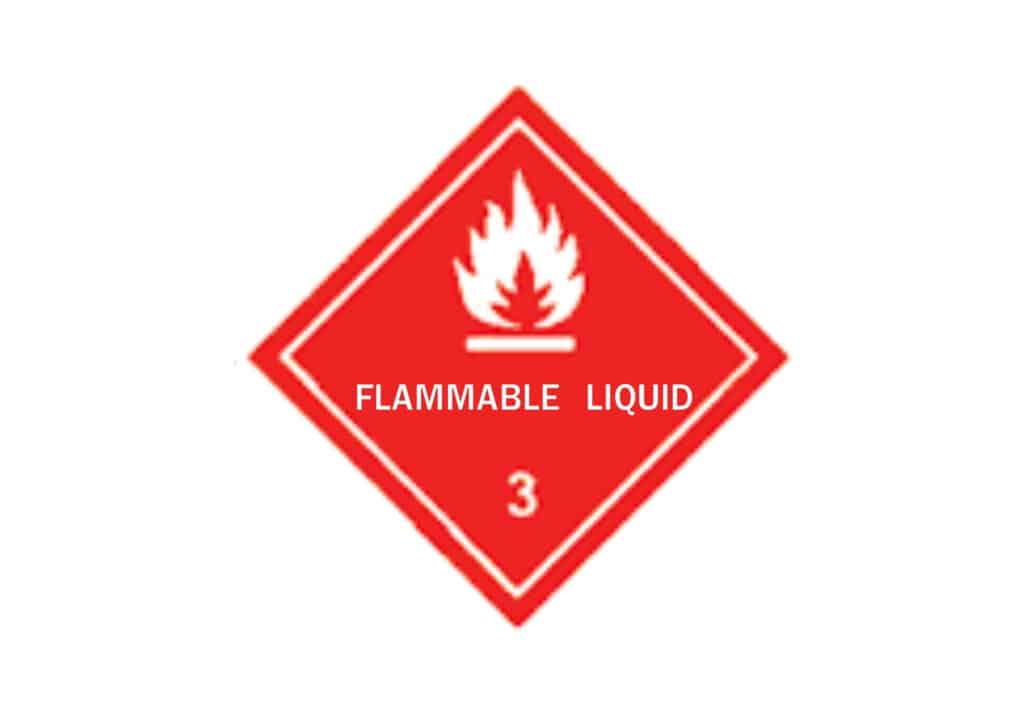
Category 3 Flammable liquids are liquids with a flash point lower than 37.8.
which can be easily flammable, such as hexane, chlorobutane, cyclohexane, benzene, ethyl alcohol
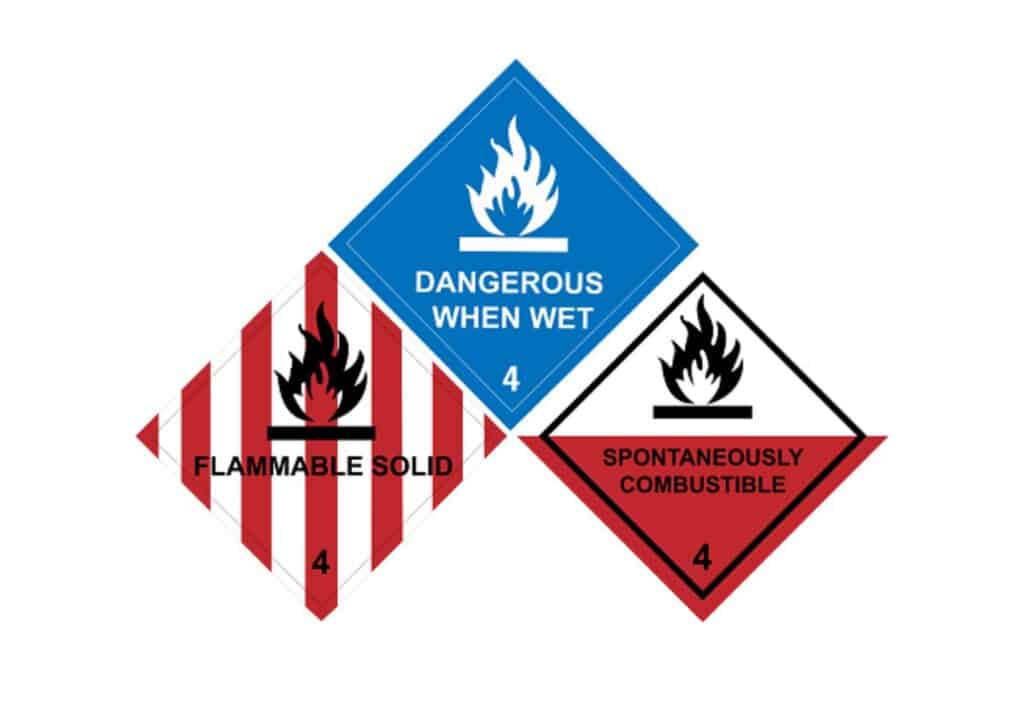
Category 4 Flammable solids or spontaneous combustion objects are objects that, when in contact with materials or water, will cause a combustion reaction.
Divided into 3 sub-categories:
Category 4.1 Flammable solids, easy to ignite, such as non-flammable, camphor, sulfur, phosphorus, hexamate, tillenetetramine.
Category 4.2 Objects that can spontaneously ignite, such as aluminum, alkyl halides, carbon. dimethyl zinc, white phosphorus, nitrocellulose, sodium sulfite potassium hydrosulfite
Category 4.3 Hazardous substances: when wet, flammable gases may be generated, such as alkyl metal, aluminum powder, aluminum carbide, barium, calcium, calcium siliphite.
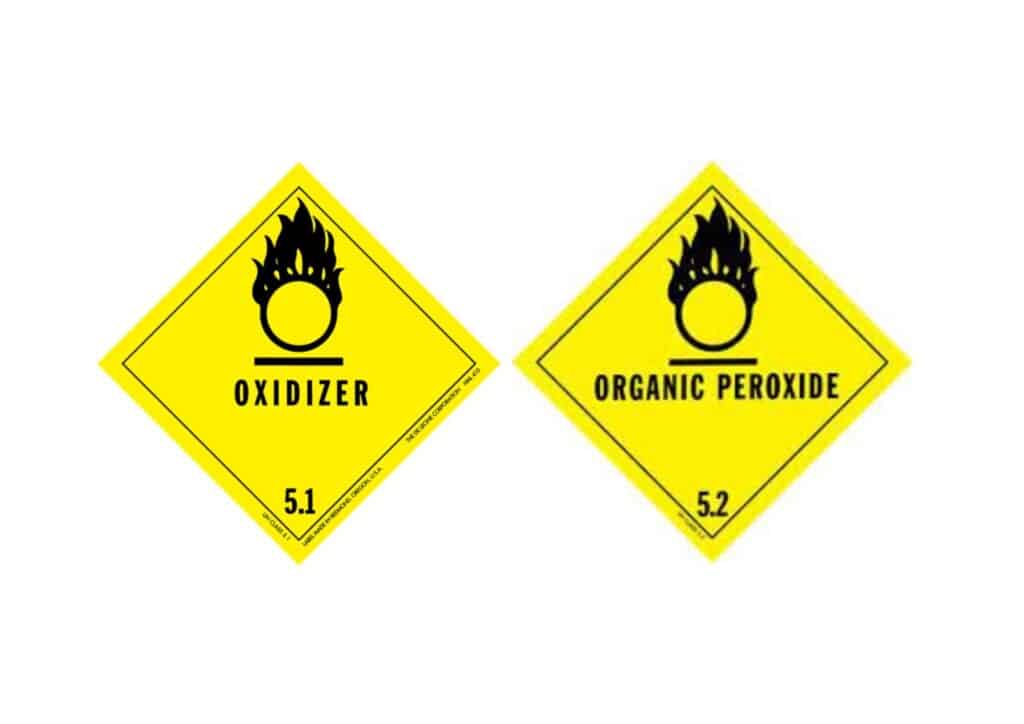
Category 5: Oxidizing materials and release organic peroxide
Divided into 2 sub-categories:
Category 5.1 Oxidizing materials such as aluminum nitrate. ammonia nitrate Barium chlorate, bromine pen, tafuloxide, hydrogen peroxide
Type 5.2 Organic peroxide such as acetyl, acetone peroxide acetyl benzoyl peroxide
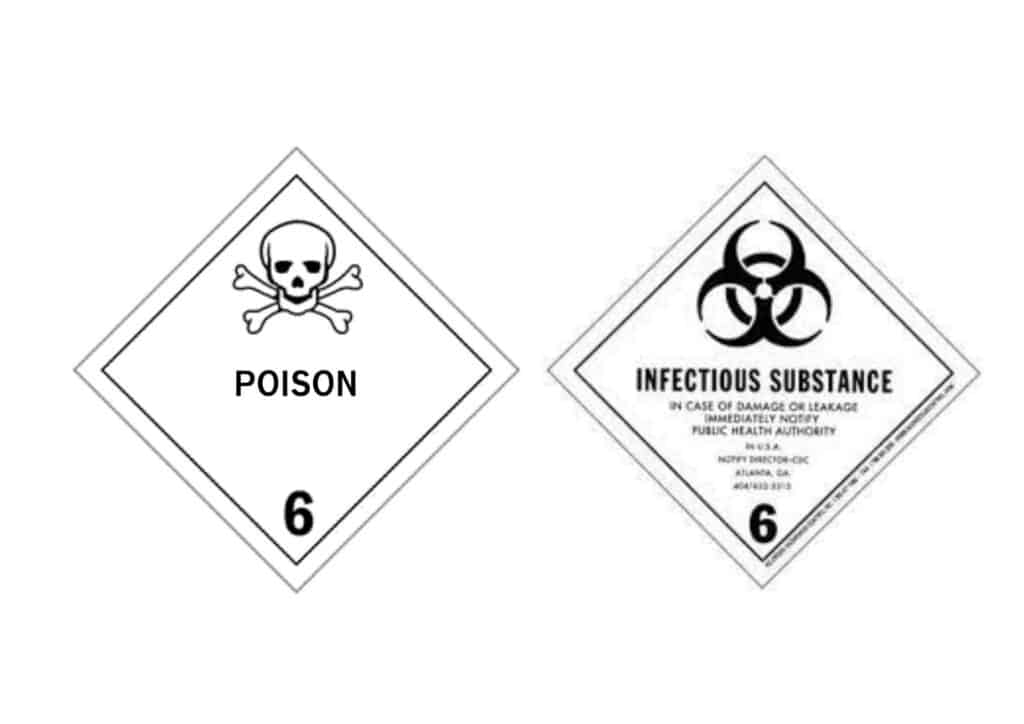
Category 6: Toxic substances and infectious substances
Divided into 2 sub-categories:
Category 6.1 Toxic substances that may cause danger to life. Severe illness when exposed to products such as arsenic trioxide, cyanite, chloronitrile, benzene, dibromomethane, dichloromethane.
Category 6.2 Infectious objects Objects that contain microorganisms or microbial toxins which causes disease in humans and animals
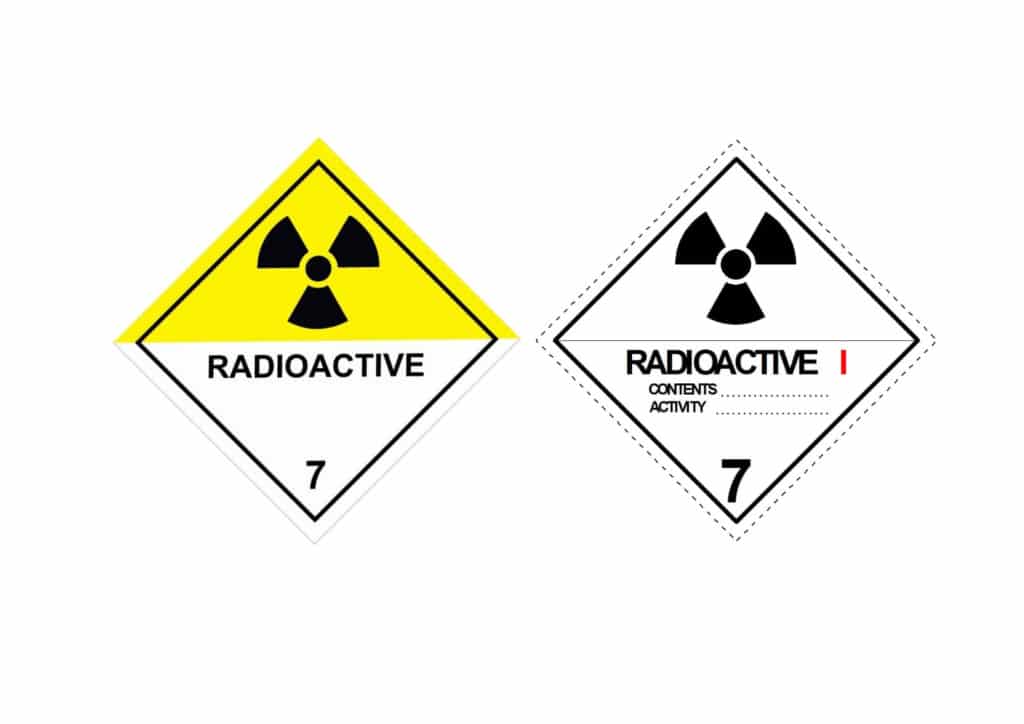
Category 7: Radioactive materials such as cobalt 60, plutonium 238, uranium 233, radium uranium.
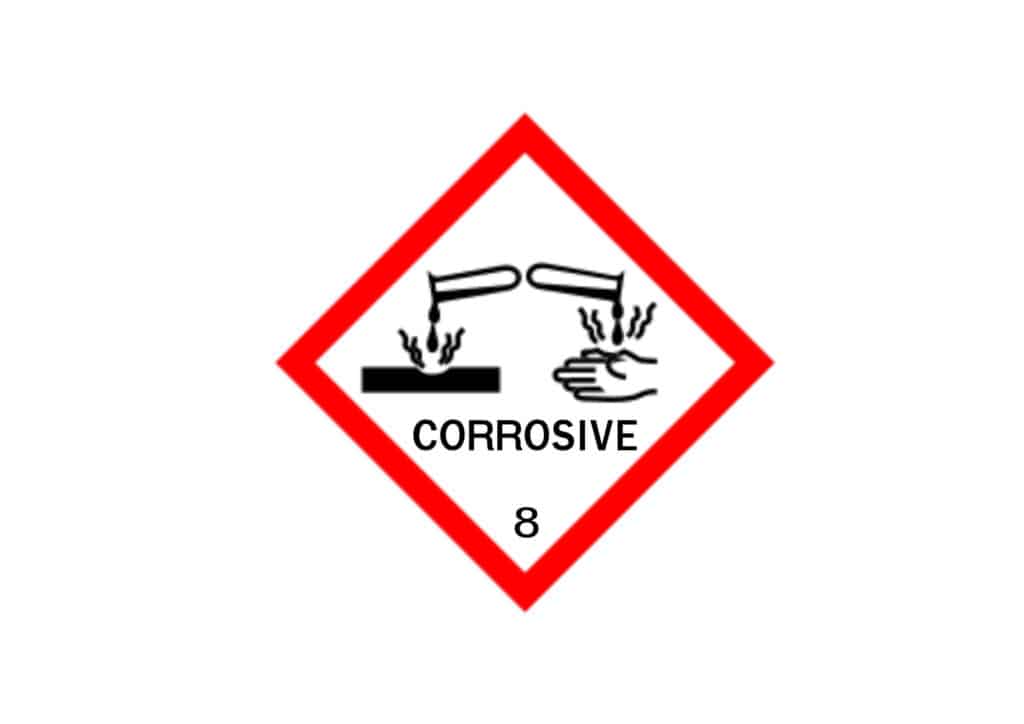
Category 8: Corrosive substances are corrosive to tissues and materials, such as sulfuric acid, phosphoric acid, nitric acid, potassium hydroxide, sodium hydroxide.
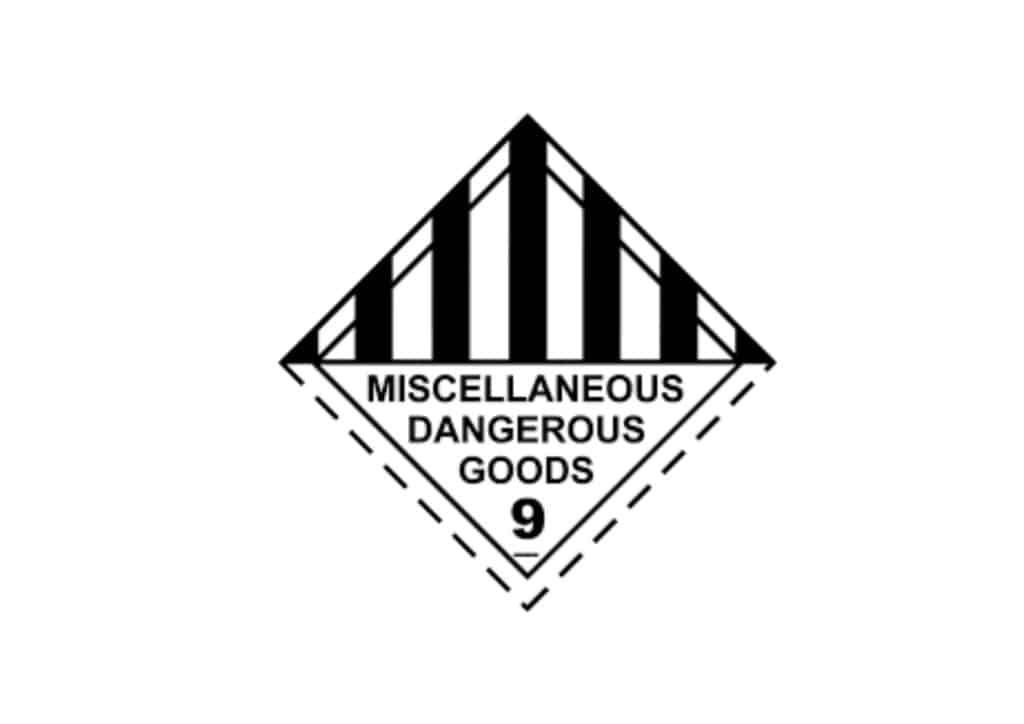
Category 9: Other hazardous substances such as asbestos, zinc hydrosulfite, PCBs, other hazardous wastes.
Thank you for the information from: Hazardous Substances and Chemicals Information Center
If you have hazardous materials that you want to dispose of, treat them properly. You can inquire at SSC Oil Company Limited. We are happy to serve you. Provide advice on waste disposal All types of industrial waste
phone. (+66) 2-026-6547
Email: sscoil002@gmail.com





